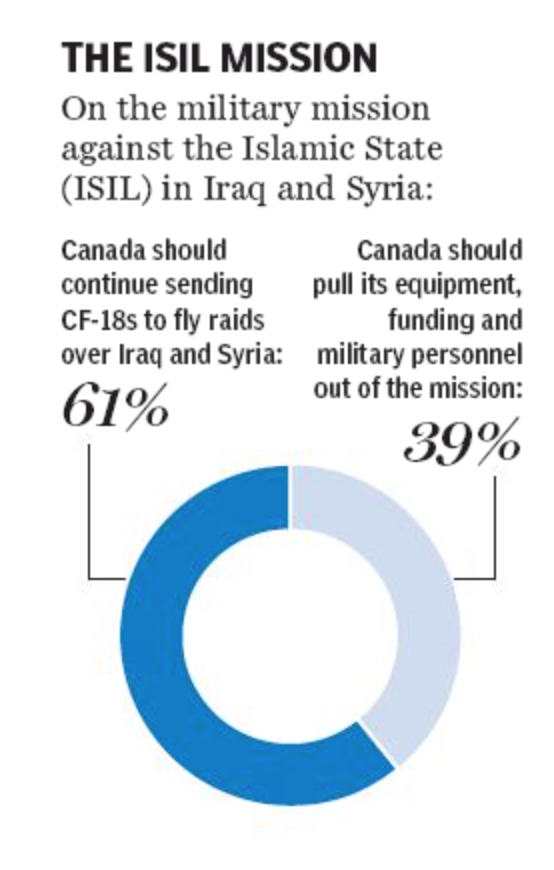Reviving Canada-U.S. relations no easy task
CAMPBELL CLARK
The Globe and Mail
Last updated Monday, Sep. 28, 2015
Back in 2005, when Stephen Harper was running in the election that would bring him to power, relations with the United States were a big part of the campaign. Not so now. And Mr. Harper doesn’t talk about Washington in the same way at all.
Now, as party leaders prepare for Monday night’s Munk Debate on foreign policy, there’s been little focus on relations with the United States, still our dominant trading partner, our biggest security partner, the only country Canada borders and the biggest power in the world.
This at a time when high-level relations have been unusually cool for two friends, and some veteran U.S. watchers think it won’t be simple to warm them up again. Hillary Clinton has announced that she, too, would reject Keystone XL pipeline, for example. Yet Canada-U.S. relations haven’t sparked much campaign drama.
It’s not an easy issue. Mr. Harper no longer can easily claim, as he once did, that being a good ally helps Canada gain cross-border concessions. Liberal Leader Justin Trudeau criticizes Mr. Harper for botching Keystone – but does he really have a recipe for bringing cross-border benefits? And New Democratic Party Leader Thomas Mulcair has said relatively little about it.
In the 2005-06 campaign, it was Liberal Paul Martin who pushed the United States into view with some uncharacteristically sharp anti-U.S. rhetoric intended to portray Mr. Harper as a toady to George W. Bush’s America.
Mr. Harper had previously accused the Liberals of damaging Canada’s interests by failing to work with its ally. He had written a Wall Street Journal op-ed in 2003 expressing dismay that Canada didn’t fight in Iraq. More broadly, he put forward a calculus for relations with Washington – that Ottawa must join with the U.S. on global issues to earn influence in Washington that could be used to serve Canada’s bilateral interests in areas like trade.
But it hasn’t been so simple. Being an ally in Afghanistan didn’t make U.S. President Barack Obama rush to approve Keystone XL. And Mr. Harper didn’t stick to the expected script, either. He responded to Keystone delays with a campaign that included declaring the project a “no-brainer,” dismissing delays as narrow politics, and lobbying that some saw as siding with U.S. Republicans. The new U.S. ambassador who arrived in Ottawa in 2014, Bruce Heyman, spent his first months in tense meetings, then being frozen out of contact. Mr. Harper ascribed the difficulties to Mr. Obama – and implicitly, suggested the solution is a new president.
But last week, Ms. Clinton , the Democratic front-runner, said she won’t approve Keystone either. Narrow or not, U.S. politics is something Canadians have to deal with in their relationship with Washington.
Even more jarring was a surprise in trade talks to create the 12-nation Trans-Pacific Partnership. The United States and Japan struck a deal to allow more foreign content in North American cars, watering down advantages for NAFTA partners Canada and Mexico, creating concerns for a Canadian industry that employs 80,000 – without warning Ottawa.
“That should be a wake-up call,” said Fen Hampson, distinguished fellow with the Centre for International Governance Innovation. The idea that being nice Canadians will bring American rewards is in doubt now that U.S. politics is acrimonious and driven by vocal lobbies. “The new context is that the United States is not going to be handing out candy canes to its negotiating partners, especially its NAFTA partners.”
Of course, Keystone has become an overblown symbol, and many elements of Canada-U.S. relations still move along. The opposition parties argue a general reset will lessen the irritants, though.
Mr. Trudeau has blamed the Keystone delay on Mr. Harper’s failure to adopt credible environmental policies to prevent the pipeline becoming a symbol for climate change, and for a partisan, ideological, undiplomatic approach that created enemies in Washington.
The Liberal Leader’s idea for a reset revolves around a more diplomatic Canada, one that tries to engage the United States on climate change, and embraces North America, and Mexico – a potential two-on-one ally in continental affairs. Still, it’s light on issues, such as security co-operation, which matter to both sides.
The NDP, meanwhile, offers a revised version of the idea that Canada’s help on global issues will earn goodwill on cross-border ones. MP Paul Dewar said Canada can find a global role that’s helpful to the United States by playing a bigger role in places the United States doesn’t, such as Mali, or the Central African Republic. There are many countries that will offer six fighter jets to a mission like the one in Iraq, so in the end, Canada’s contribution is not significant, he said.
Canada, Mr. Dewar noted, refused to take part in key diplomatic initiatives such as the nuclear deal with Iran stuck by the United States and five other countries, instead “hectoring and lecturing,” he said – and now should offer expertise in verifying the deal, rather than sit on the sidelines. That kind of global co-operation, and a smarter cross-border diplomatic co-operation by consulates across the U.S., will help win Canada cross-border benefits, Mr. Dewar argued.
Now, as they prepare to debate foreign policy, the party leaders have an opportunity to put relations with our largest partner at the forefront again, if they’re bold, but promising results won’t be simple.







